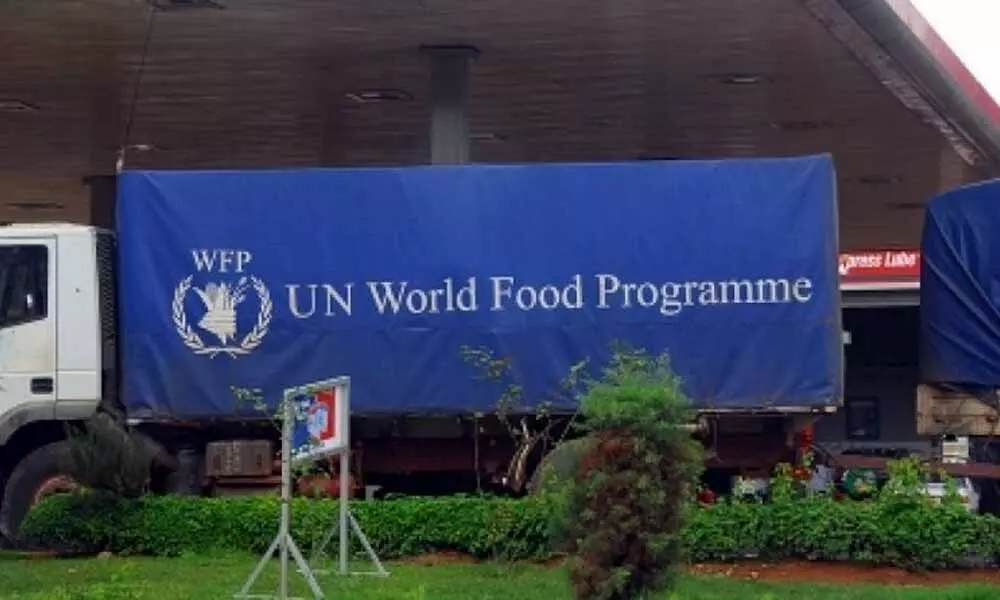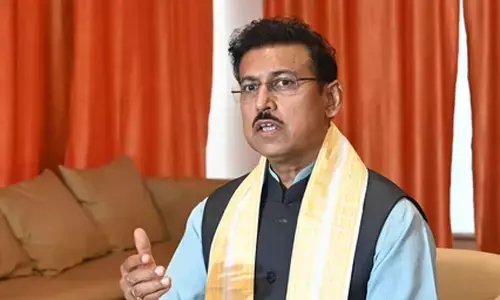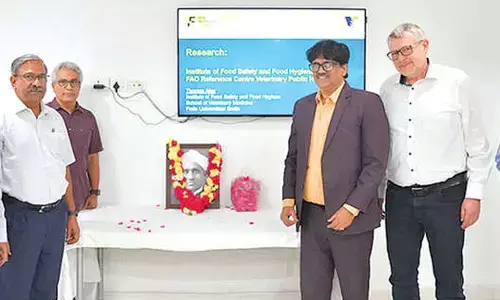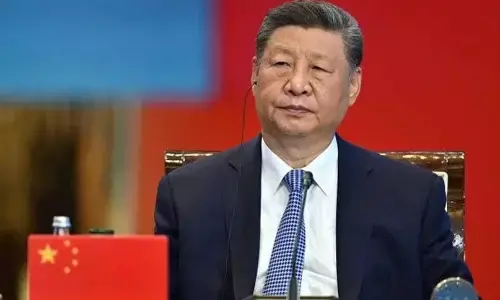WFP, sustainer of displaced and distressed, wins Nobel Peace Prize

WFP, sustainer of displaced and distressed, wins Nobel Peace Prize (Photo/IANS)
The UN's World Food Programme, which offers succour and sustenance to people around the world who find themselves in dire straits due to conflict, climate crises or Covid-19
Oslo/New Delhi: The UN's World Food Programme, which offers succour and sustenance to people around the world who find themselves in dire straits due to conflict, climate crises or Covid-19, was on Friday awarded the Nobel Peace Prize 2020 for its "efforts to combat hunger".
The award to an organisation, instead of an individual like teen environment crusader Greta Thunberg or New Zealand Prime Minister Jacinda Ardern who were believed to be among the 318 nominees, seems to underscore the importance of collective action to tackle growing natural and human threats to food security and sustainable livelihoods around the world, especially in the underdeveloped countries of the Global South.
Last year, the award was conferred to Ethiopian Prime Minister Abiy Ahmed, whose peace deal with Eritrea ended a 20-year military stalemate following their 1998-2000 border war.
The Rome-headquartered WFP, which is in the forefront of helping the undernourished in various conflict and disaster areas, be it refugees from strife-torn Yemen or Syria, the Rohingyas in their Bangladesh camps, the drought-hit in Africa's Sahel or the pandemic-affected around the world, is the latest in the UN family to win the prestigious prize and the first since the Intergovernmental Panel on Climate Change (2007).
The coronavirus pandemic has also lead the organisation to scale up its assistance efforts, and as per WFP US, it is providing life-saving meals to 138 million of the world's most vulnerable people in more than 80 countries this year. It is also a significant contributor in achieving the UN's Millennium Development Goals on tackling hunger and starvation around the world.
Announcing the award, the Norwegian Nobel Committee, which is entrusted with choosing the winner of this particular award while the rest are done by Swedish bodies, said that it decided to honour the WFP "for its efforts to combat hunger, for its contribution to bettering conditions for peace in conflict-affected areas and for acting as a driving force in efforts to prevent the use of hunger as a weapon of war and conflict".
"The Norwegian Nobel Committee wishes to emphasise that providing assistance to increase food security not only prevents hunger, but can also help to improve prospects for stability and peace.
"The WFP has taken the lead in combining humanitarian work with peace efforts through pioneering projects in South America, Africa and Asia," it said in a statement.
"With this year's award, the (Committee) wishes to turn the eyes of the world to the millions of people who suffer from or face the threat of hunger," Norwegian Nobel Committee chairwoman Berit Reiss-Andersen said, as per media reports.
"The WFP plays a key role in multilateral cooperation in making food security an instrument of peace."
Reacting to the announcement, WFP Director David Beasley, in a tweet, said: "We are deeply humbled to receive the Nobel Peace Prize. This is an incredible recognition of the dedication of the @WFP family, working to end hunger everyday in 80+ countries.
Thank you @NobelPrize for this incredible honor!."
The WFP was founded in 1961 following a conference of the Food and Agricultural Organisation in 1960, and Dutch civil servant Addeke Hendrik Boerma served as its first Executive Director (1962-67), with Indian Sushil K. Dev holding charge as acting director of the organisation in January-August 1968. However, since 1982 it has been headed by Americans.
Despite its endeavours around the world, especially the key areas of Congo, northeastern Nigeria, the Sahel, South Sudan, Syria and Yemen, where it has categorised the situation as 'L3', or the highest level which is beyond the capacity of its local or regional establishment and demands a multilateral response, the WFP has not escaped its share of controversies.
Activists, especially in Africa, have criticised it for some consequences of its aid, which can foist corruption by local elites and harm local agriculture and employment opportunities, being part of the trade subsidy system in developed countries, prop repressive regimes and create a culture of dependency, among others.









